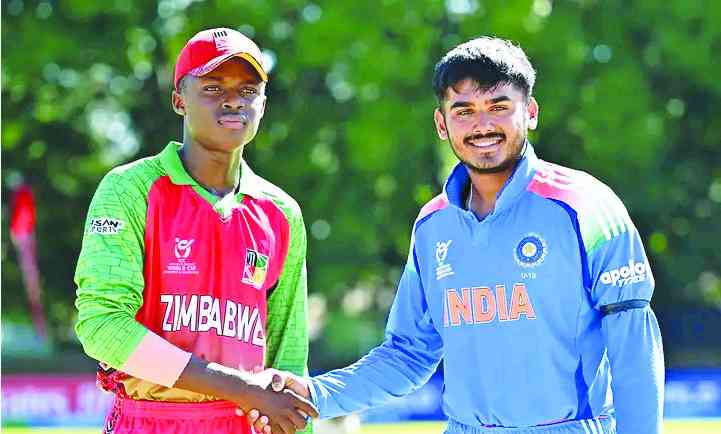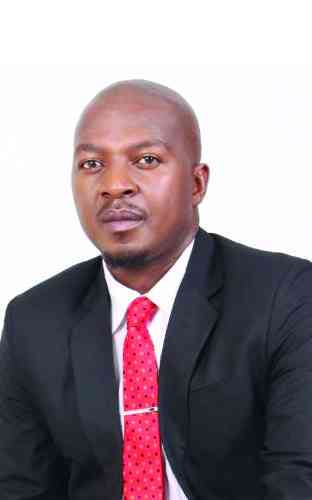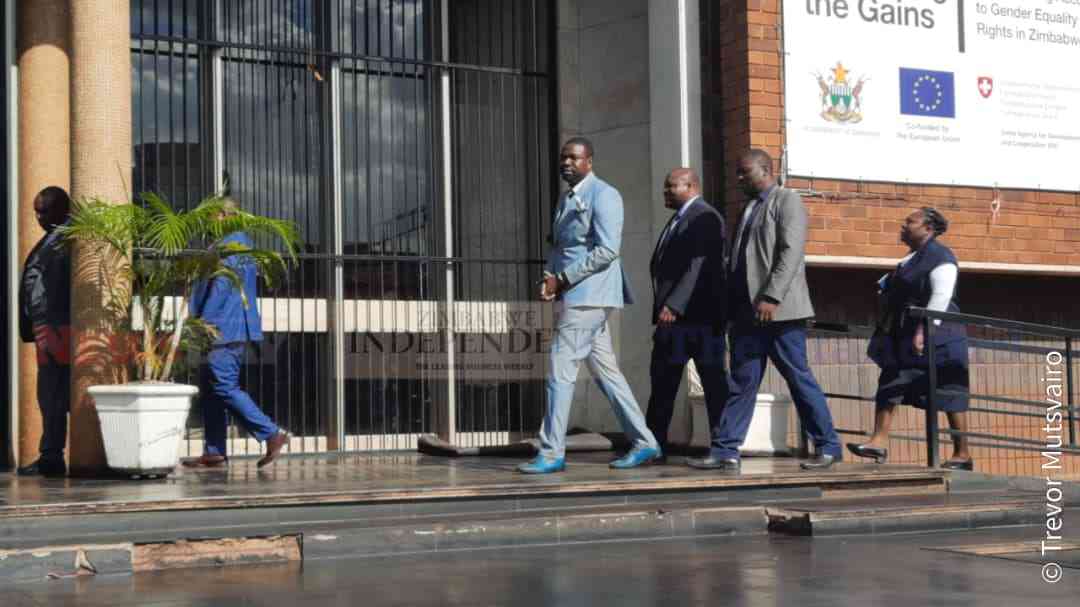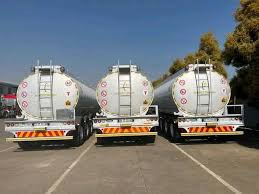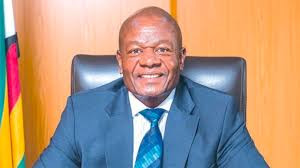
ZIMBABWE has seen a significant influx of remittances from its diaspora population, a vital source of financial support for many families and the economy at large. However, amid this revitalising jab, the rights of citizens living in the diaspora have often been overlooked, particularly concerning their right to vote.
NewsDay Weekender journalist Sharon Buwerimwe (ND) caught up with Citizens Coalitions for Change (CCC) North America provincial chairperson Tawanda Dzvokora (TD), also known as Chief Svosve, who is advocating for democracy and the rights of Zimbabweans, both at home and abroad. Below are excerpts from the interview.
ND: What is your stance on the ruling Zanu PF party blocking the diaspora vote? How will this decision impact the representation of Zimbabweans living outside the country?
TD: I have lived in the diaspora for more than 20 years and about five to seven million Zimbabweans are living in the diaspora. Together we have fought the Government of Zimbabwe, we have petitioned it to allow us to vote from the diaspora. We have protested and we have done everything that we can as Zimbabwean citizens in the diaspora, but the government has deliberately excluded the Zimbabwean diaspora from voting. The Constitution of Zimbabwe clearly says that every Zimbabwean who is above the age of 18 has a right to vote.
However, the government led by the Zanu PF party excludes Zimbabweans. Most of the time they hide behind financial constraints to remove the people in the diaspora from exercising their democratic right of voting. We know that this has nothing to do with the finances. There are times when we even raised our own money and offered that we are going to financially support the diaspora vote. Even other organisations like the United Nations previously announced that they can help the Zimbabwean government with financial resources to allow every Zimbabwean to exercise their right. But the Zanu PF-led government has constantly refused because they know that the majority of the people that live outside Zimbabwe do not support them. They know that many Zimbabweans have been forced to leave the country because of either human rights violations against them or lack of opportunities in the country.
ND: How do you intend to represent the interests of Zimbabweans living in the diaspora, especially in light of the challenges they face, such as the inability to vote and contribute directly to the political process?
TD: In my capacity as the chairperson of the Zimbabwe Diaspora Voices, I will continue to fight for the Zimbabweans in the diaspora so that they are allowed to vote because it is their constitutional right. It is only the Zimbabwean government that is blocking people in the diaspora to vote. Other African countries have respected the constitutional right of their nations for example the South Africans; they are allowed to vote from wherever they are. So we are going to continue having protests, we are going to demonstrate in the streets of Washington DC and work with our colleagues in other countries so that the rights of those living in the diaspora are respected.
ND: How do you plan to advocate for political reform in Zimbabwe to ensure greater inclusivity and representation for all citizens, including those in the diaspora?
- Corruption Watch: Get scared, 2023 is coming
- Corruption Watch: Get scared, 2023 is coming
- Letters: Ensuring Africa’s food security through availability of quality seeds
- Is military's involvement in politics compatible with democracy?
Keep Reading
TD: As citizens living in the diaspora, we feel that we have been taken for granted by both the government and opposition in Zimbabwe and it’s unfortunate. Of course the government is the biggest culprit. We contribute significantly through remittances, millions of dollars to the Zimbabwean economy. Most of the foreign currency that the government would be abusing comes from us in the diaspora but apart from that involvement financially, the government does not consult us when they make key decisions. They do not include us, they continue to pass laws that disenfranchise Zimbabweans, like the recently passed Patriotic Bill. It’s meant to punish Zimbabweans who engage politically outside Zimbabwe. If you have a meeting with a foreign entity, you are deemed a sell-out. So, all those issues need to be resolved. So we believe that we should be consulted and as well since we constitute over 20% of the Zimbabwean population. We should be respected; we are not cash cows. We are not here to provide finances for the government; we want to be taken seriously. We want to be part of the process that makes key decisions whether it’s for the opposition or for the government. We are key partners. This does not only apply to the government but to the opposition political parties. You can ask anyone in the diaspora, they will tell you that some people in political parties just consult them when they want their financial contribution and that’s not how it should work.
ND: What is your assessment of the Zimbabwe Gold (ZiG) introduced by the government after the previous currency failed? In your view, ow will it affect the economy, especially for citizens both at home and abroad?
TD: The introduction of the so-called ZiG is daylight robbery to the people of Zimbabwe. It is fraud that the government is performing against the people of Zimbabwe. We don’t believe that the currency is going to work, just like the introduction of bonds before the ZiG, we strongly feel that it's going to fail as well. It’s not backed by any meaningful production, it's just going to be the printing of paper just like before. There is nothing that has changed in the economy of Zimbabwe to support this new currency. We have constantly urged the Zimbabwean government to take care of the political problems that are besieging the country. It’s not just macroeconomics that is affecting the southern African country, there are political issues.
ND: Remittances from diasporas are a significant contribution to Zimbabwe's economy. How do you plan to ensure that these contributions are recognised and utilised effectively for the benefit of the country?
TD: The Zimbabweans in the diaspora contribute close to US$2 billion every year through remittances and this forms the bulk of foreign currency that the government has been using or abusing. That’s obviously the foreign currency that they end up using for their own interests. The money must be used on buying medicines and making sure that there are adequate facilities and quality education. The money also contributes to the country’s gross domestic product so we would expect the government to give us our say in as far as our management of the economy and also participation of the economy is concerned. Despite all these major contributions, the people in the diaspora are always marginalised. We have tried to use our remittances to leverage against the government, unfortunately, the majority of people would be thinking of their relatives back home. Should they make their relatives suffer by withholding the remittances for a year or two, but at the end of the day, one will be thinking of relatives who are suffering. It’s an idea that we will continue to talk about so that we arm twist the government till they recognise the importance of people in the diaspora.
ND: What alternative economic policies or reforms do you believe are necessary to address the challenges facing Zimbabwe, including inflation, unemployment, and currency stability?
TD: We have come up with a diaspora policy that talks about how we want the Zimbabweans in the diaspora to be involved in what is happening in Zimbabwe in terms of the economic, political and social development. We have people in our committee who are economists and some who are working in big multinational companies all over the country. Zimbabwe is endowed with vast human resources. We have gotten those people together and some of the experts have helped us craft our diaspora policy. It is on paper and it was launched in South Africa. The policy encourages people in the diaspora to take capital into Zimbabwe, we have realised that we can’t wait for the opposition to take power and start doing something in Zimbabwe. As a result, some have already started doing so and Zimbabweans remain committed to seeing the southern African country moving from a third world country to first. I believe that the country can flourish if we practice good politics; everything is based on the politics of the country — no sane investor wants to bring their capital in a country that is chaotic and plagued with human rights abuses.
ND: What measures do you propose to protect the rights and ensure the security of Zimbabweans living in the diaspora, particularly in regions where they may face discrimination or other challenges?
TD: We have Zimbabweans in the diaspora who are living in a discriminatory environment and we have mobilised people and some other organisations that are helping out across the country. There are those Zimbabweans who also want to apply for political asylum, we also help them. Here in America we have the Zimbabwe Diaspora Voices and in the United Kingdom we have an organisation that helps Zimbabweans who would have come in, same applies in South Africa – we have our people who assist those who would have faced xenophobia and there are some legal representations. So we continue to help each other under difficult circumstances, we don’t leave anyone behind as an opposition party.

